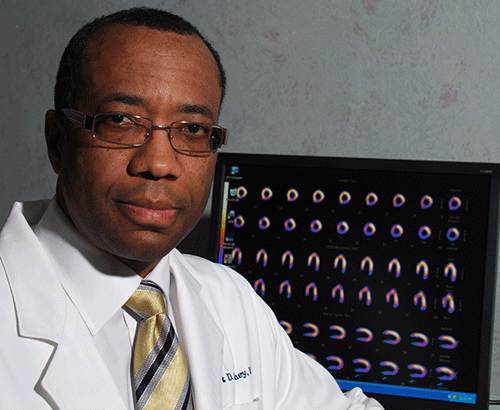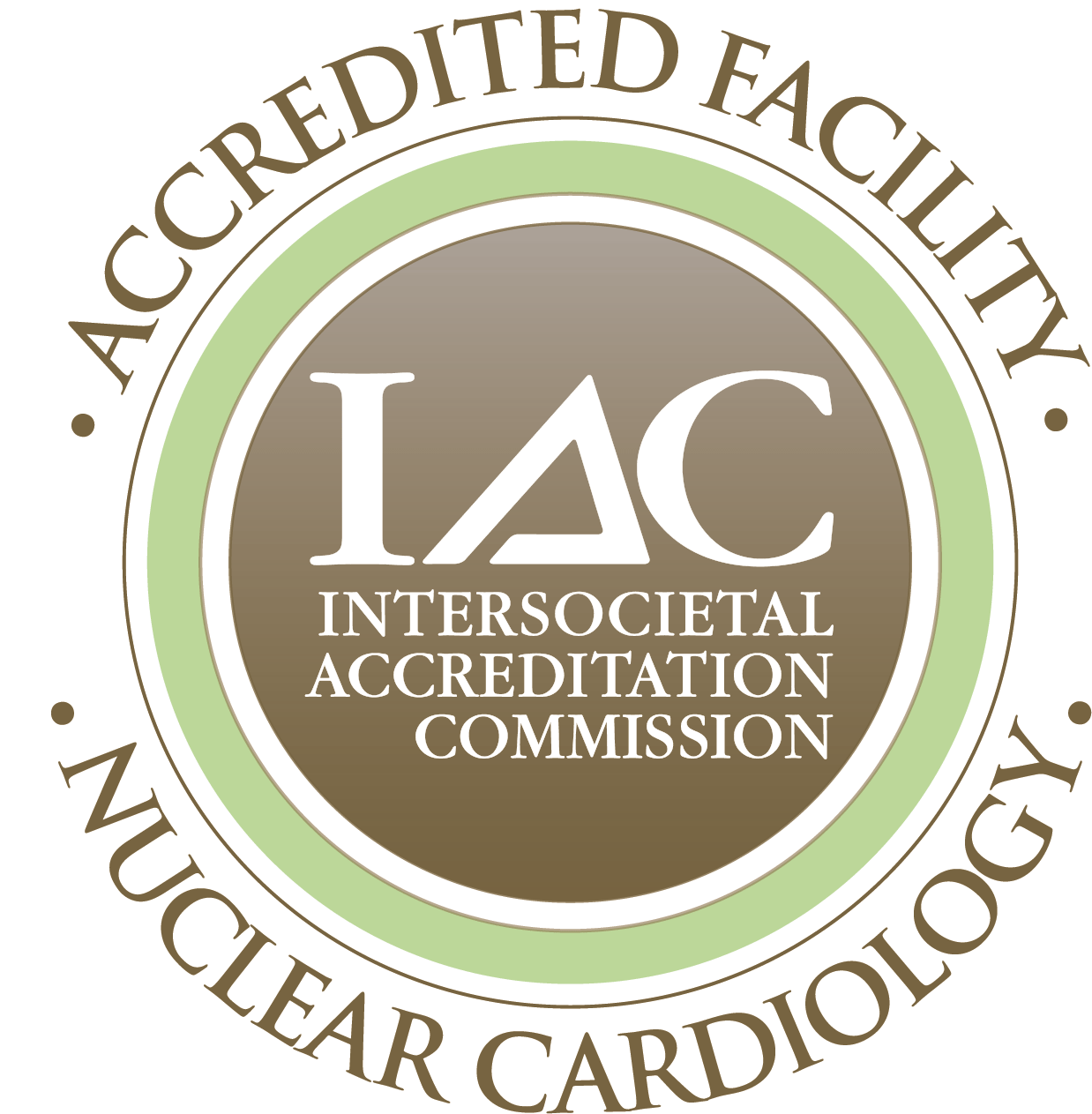Nuclear Stress Tests
A Nuclear Stress Test is a safe, non-invasive procedure used to examine your heart and potentially diagnose problems. The nuclear stress test can accurately identify areas of abnormal myocardial perfusion, and determine the functional capacity of your heart muscle. Blood flow through the coronary arteries is typically adequate at rest, even in partially blocked vessels. Under conditions of stress blood flow in a narrowed artery is significantly reduced. By comparing the images of blood flow during rest and stress, the nuclear scan can accurately determine whether patients have coronary blockages (stenosis), scarring, or normal perfusion, function and viability. Nuclear imaging can also measure the function of the heart muscle. Knowing how the heart works can be an important predictor of future events.
Nuclear imaging can also measure the function of the heart muscle. Knowing how the heart works can be an important predictor of future events.
How is the test done?
On arrival you will be brought to a preparation area where a nuclear technologist will insert a small IV into your arm. A radiopharmaceutical will be injected into the IV. After a short waiting period resting images of your heart will be obtained. You will then be brought to the stress room where you will be connected to monitoring wires. The stress test is performed either by treadmill exercise or with medication if you cannot walk on the treadmill. After the stress portion you will be returned to the imaging room where the second set of imaging pictures will be taken. The procedure will take 2-3 hours al together.
How do I prepare for the test?
Please refer to Heart Clinic of Louisiana's patient resource page for pre-procedural information regarding your specific test. In general do not eat or drink anything six hours before your test, refrain from caffeine 24 hours prior to your test
Heart Clinic of Louisiana Nuclear Cardiology Laboratory is a nationally accredited lab. Accreditation is provided by the Intersocietal Commission for the Accreditation of Nuclear Laboratories (ICANL). Accreditation is earned by establishing high standards of quality patient care, careful evaluation of laboratory procedures, and review by an outside board for compliance with nationally accredited standards. Accreditation is re-evaluated every three years for continued compliance.







